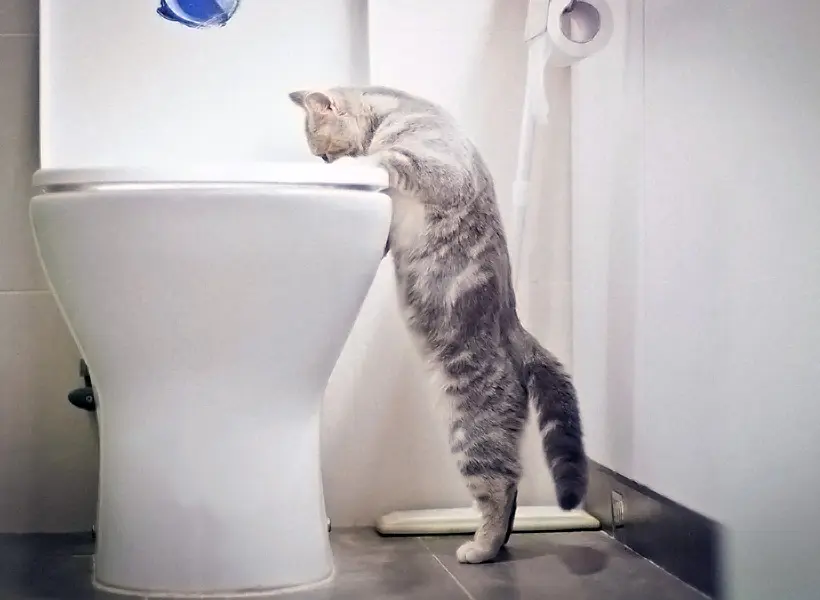Why Flushing Cat Poop Down Your Toilet Can Cause Problems - Recommendations for Proper Disposal
Why Flushing Cat Poop Down Your Toilet Can Cause Problems - Recommendations for Proper Disposal
Blog Article
They are making a few good observations related to Don’t flush cat feces down the toilet in general in this post directly below.

Introduction
As cat owners, it's necessary to be mindful of exactly how we throw away our feline good friends' waste. While it might appear practical to flush cat poop down the toilet, this technique can have destructive effects for both the atmosphere and human health and wellness.
Environmental Impact
Flushing cat poop introduces unsafe pathogens and bloodsuckers right into the water, posturing a substantial risk to water ecosystems. These pollutants can negatively influence marine life and concession water top quality.
Health and wellness Risks
Along with environmental concerns, purging feline waste can also posture health risks to human beings. Cat feces may have Toxoplasma gondii, a parasite that can trigger toxoplasmosis-- a possibly severe health problem, particularly for expecting women and individuals with damaged immune systems.
Alternatives to Flushing
The good news is, there are safer and a lot more responsible methods to deal with feline poop. Take into consideration the following options:
1. Scoop and Dispose in Trash
One of the most usual approach of getting rid of pet cat poop is to scoop it right into a biodegradable bag and throw it in the trash. Be sure to utilize a devoted trash scoop and get rid of the waste immediately.
2. Usage Biodegradable Litter
Select naturally degradable feline litter made from materials such as corn or wheat. These clutters are eco-friendly and can be securely thrown away in the trash.
3. Bury in the Yard
If you have a backyard, take into consideration burying cat waste in a marked area far from vegetable yards and water sources. Make certain to dig deep sufficient to stop contamination of groundwater.
4. Set Up a Pet Waste Disposal System
Invest in a family pet waste disposal system particularly made for cat waste. These systems utilize enzymes to break down the waste, reducing odor and ecological influence.
Final thought
Liable family pet ownership prolongs beyond offering food and shelter-- it additionally involves correct waste management. By avoiding flushing cat poop down the toilet and opting for different disposal techniques, we can reduce our environmental impact and secure human health and wellness.
Why You Should Never Flush Cat Poop Down the Toilet
A rose by any other name might smell as sweet, but not all poop is created equal. Toilets, and our sewage systems, are designed for human excrement, not animal waste. It might seem like it couldn’t hurt to toss cat feces into the loo, but it’s not a good idea to flush cat poop in the toilet.
First and foremost, assuming your cat uses a litter box, any waste is going to have litter on it. And even the smallest amount of litter can wreak havoc on plumbing.
Over time, small amounts build up, filling up your septic system. Most litter sold today is clumping; it is made from a type of clay that hardens when it gets wet. Ever tried to scrape old clumps from the bottom of a litter box? You know just how cement-hard it can get!
Now imagine just a small clump of that stuck in your pipes. A simple de-clogger like Drano isn’t going to cut it. And that means it’s going to cost you big time to fix it.
Parasitic Contamination
Believe it or not, your healthy kitty may be harboring a nasty parasite. Only cats excrete Toxoplasma in their feces. Yet it rarely causes serious health issues in the cats that are infected. Most people will be fine too if infected. Only pregnant women and people with compromised immune systems are at risk. (If you’ve ever heard how women who are expecting are excused from litter cleaning duty, Toxoplasma is why.)
But other animals may have a problem if infected with the parasite. And human water treatment systems aren’t designed to handle it. As a result, the systems don’t remove the parasite before discharging wastewater into local waterways. Fish, shellfish, and other marine life — otters in particular — are susceptible to toxoplasma. If exposed, most will end up with brain damage and many will die.
Depending on the species of fish, they may end up on someone’s fish hook and, ultimately on someone’s dinner plate. If that someone has a chronic illness, they’re at risk.
Skip the Toilet Training
We know there are folks out there who like to toilet train their cats. And we give them props, it takes a lot of work. But thanks to the toxoplasma, it’s not a good idea.

We hope you enjoyed our part on How to Dispose of Cat Poop and Litter Without Plastic Bags. Thanks for finding the time to browse our blog. If you please take the time to share this post if you appreciated it. Thanks a lot for your time. Don't forget to check up our website back soon.
Schedule Appointment Now Report this page